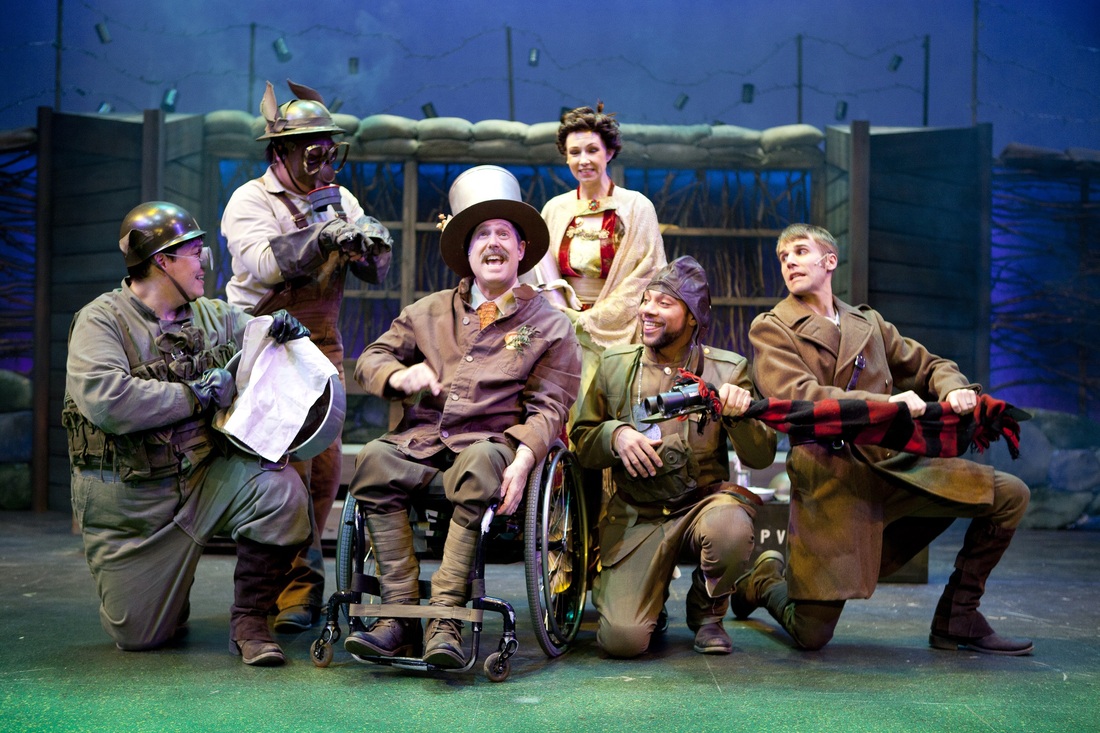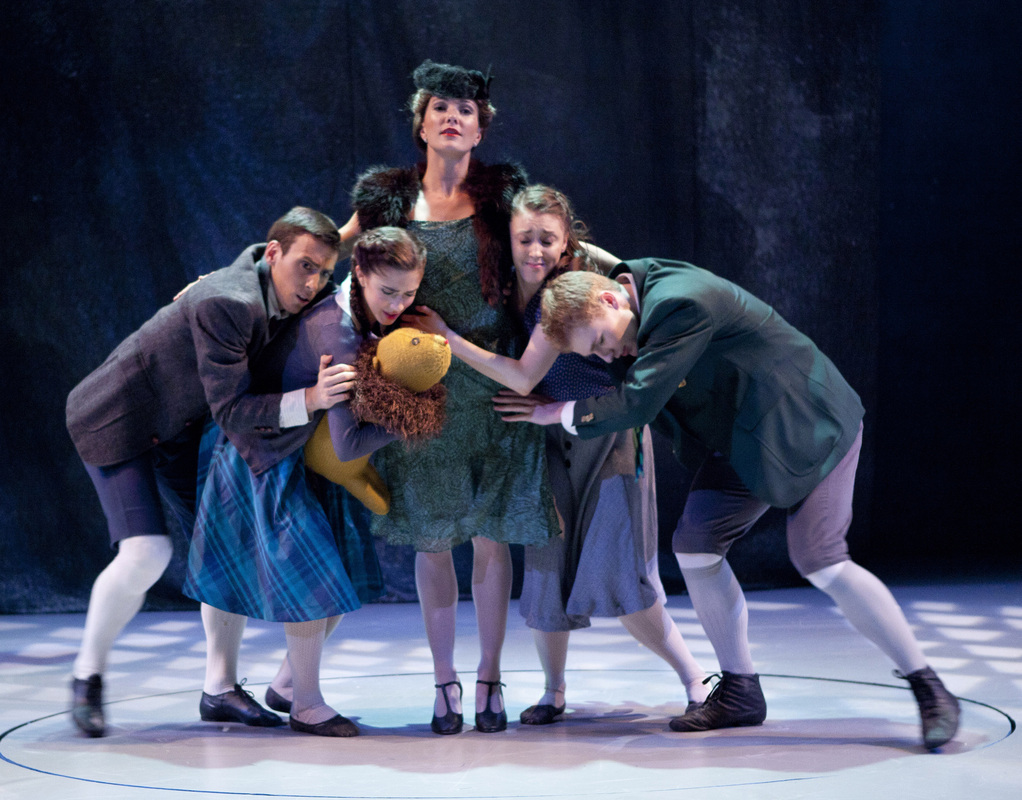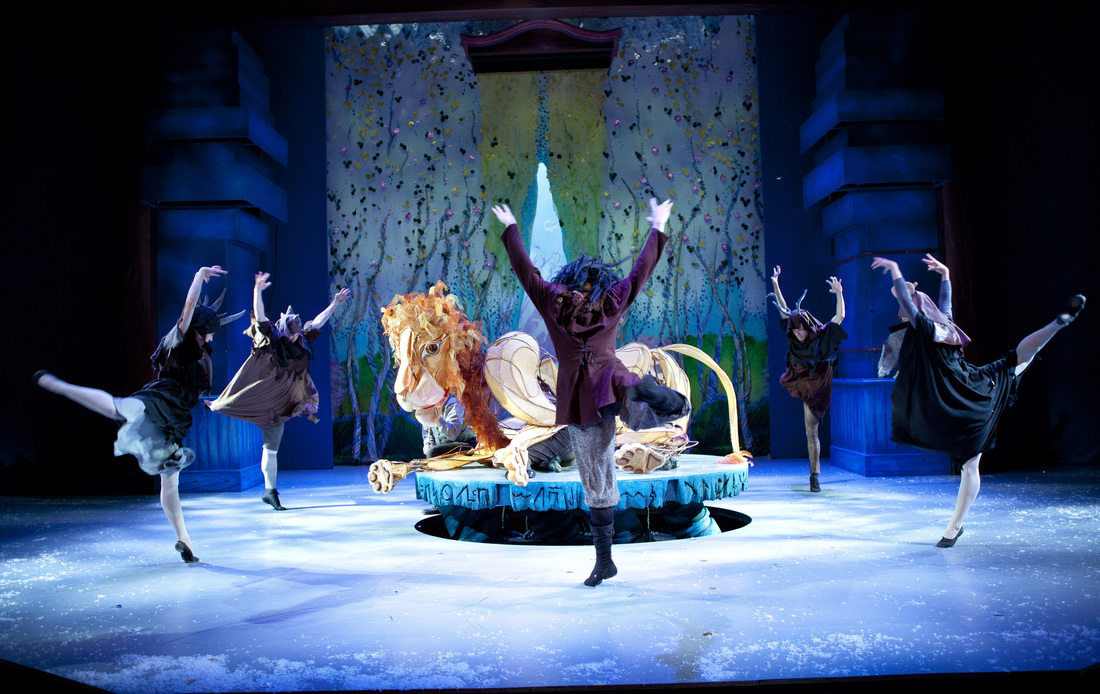|
JACQUELINE LAWTON: Why did you decide to get into theatre? Was there someone or a particular show that inspired you?
JANET STANFORD: I actually don’t think you “decide” to go into theatre. There’s nothing rational about such a choice. I felt compelled to do theatre from the age of about four and despite all my many efforts through college, grad school and my first job at Samuel French’s to be sensible and stay either out of it or on the periphery, I kept being drawn back in. Growing up as I did in England during the 60’s & 70’s, I was immersed in a culture that loves live theatre—people of all age groups and social classes love to perform as well as attend. I started going to plays in the West End with my Mother as a kid and then when I was a teen I sought out drama classes and plays that I could go to on my own. I was lucky to see Judi Dench play Cordelia, Helen Mirren in the title role of The Sea Gull, and Glenda Jackson and Suzanne Hampshire in The Maids. But even more than the amazing actors, I was drawn to the brilliant writing that was happening in the London theatre at the time—playwrights like Michael Frayn, Caryl Churchill and David Hare among my favorites. In my experience, theatre lovers either come to art with a primary fascination either for the performers or for the plays themselves. For me, the play has always been “the thing.” JL: How long have you served as Artistic Director at your company? What drew you to the position? What keeps you there? JS: I have been with Imagination Stage for nearly two decades! When I was Internship Program Director at Virginia Stage Company, I was asked to pilot a children’s series using the apprentice actors. I was really thrilled by the total involvement of children in our performances. Their engagement stood in stark contrast to the apathy of the adult audience: sleeping husbands in business suits; ladies chatting excitedly at intermission about anything except the play. I vowed then to devote my future work to audiences that had a stake in the material on stage and who could be changed utterly by the work before them. This conviction led me next into a partnership with Washington DC based actor/activist Rebecca Rice. The piece we created about domestic violence toured for several years from Minneapolis to London. It was not great literature, perhaps, but it spoke to the concerns of the women we performed for and gave dignity and value to their struggles. When I came to Imagination Stage, Rebecca continued to work with me as a director and writer until her untimely death in 2003. I still feel, as I did at the start of my career, that I have both a profound opportunity and a profound responsibility when making work for children. Theatre has been my life-long source of spiritual education as well as inspiration for me. I want to pass that on. JL: What is the most valuable lesson you learned during your tenure? Also, what skills and traits do you feel a successful artistic director should have to support the health and growth of an organization? JS: I like to think that I am always learning and coming to new discoveries. A few years ago, however, I came to the decision to be my own toughest judge and to aspire towards my own standards, not someone else’s. I like plays for young people that have serious intent and which employ sophisticated imagery and language. I like actors who are truthful, complex and daring in their approach to the work. If a story draws me in and moves me, I am happy. If it is unpredictable and yet ultimately seems inevitable, I am satisfied and proud to show it to any audience—young and old alike. I think artistic leaders can and should have a strong sense of mission. We should be opinionated, passionate, and dare to take risks. Listening to others is important but building consensus and overcoming naysayers is more so. You have to paint your flag brightly and hold it up high so that others will see your vision and want to be a part of it. JL: What excites you most about being an Artistic Director? What is your greatest challenge? JS: What I love best about my position is the chance I have to expand our audience’s horizons. Whether this is by mounting a play from a foreign culture, or distant time, or incorporating stylistic elements such as puppetry, acrobatics or video, we like to wow our young audience with images that surprise and amaze them. I have found travel to festivals overseas to be essential to my own development of an aesthetic for Theatre for Young Audiences (TYA). I have seen plays for children in Canada, Denmark and Italy that would astound you and make you wonder --as I now do-- why we in America are so prudish and so scared of the truth when it comes to our children? It is only when you travel and observe what is normal in other cultures that you realize how rarely an American adult will depict an adult as flawed in TYA. It is also rare to see the social issues that affect so many children such as divorce, disability, poverty or abuse discussed in American plays for children. But I have seen all of these topics addressed with sensitivity and great artistry abroad. The biggest challenge I face in our market economy is persuading parents and teachers that the theatre is a place to prepare your children for life, not protect them from it. The best way to face our demons as individuals or as a culture is to face them through the symbolic and safe art of storytelling. Lately, with the repercussions of the Recession still squeezing the air out of our contributed income, the one place that we’ve been able to innovate is with Theatre for the Very Young—ages 1-4. The thematic material here is necessarily gentle and non-threatening and so a good match for expansion of our mission in tough economic times. JL: If your work as an artistic director doesn’t pay the bills, what else do you do? Also, how do you balance your role leading an organization with your work as a director? Are you ever able to direct outside of your company? JS: I used to enjoy teaching part time at several of the local universities and directing at Goucher College. The large casts and adult material offered a nice balance with what I generally do but ever since Imagination Stage moved to our new building in 2003, the responsibilities of the job have grown to a point where I pretty much breathe, eat and sleep the theatre. I have taught an MFA course at Catholic University but that feels more like an extension of my day job than an alternative to it. JL: Looking at your body of work as an artistic director and a director, how conscious are you and selecting plays by women or people of color when deciding your season? Also, when it comes to hiring administrators, designers and other directors do you take race and gender into consideration? JS: Imagination Stage is a bit unusual in that the majority of staff is—and always has been—women. Still, diversity is important to us for many reasons. We crave a variety of perspectives and we want our audiences to see the full spectrum of their community on stage. We want children here to feel represented by someone on stage at all times. This is evidenced in our color and disability blind casting policies. We have also made the financial commitment to working regularly with a Deaf Scenic Designer for several years now. When it comes to plays –and we have commissioned and produced two a year since 1993, I am more interested in extreme writing talent than anything else. That said, we can brag about giving starts in TYA to local women playwrights and composers Joan Cushing, Karen Zacarias, Deborah Wicks La Puma, and Marty de Silva…We also have a long term relationship with African American Hip Hop playwright/director/actor Psalmayene 24 who is currently working on the third play in his Hip Hop trilogy for production at Imagination Stage in the 2013-14 Season, CINDERELLA THE REMIX. JL: DC audiences are ... JS: … meloobius JL: DC actors and designers are ... JS: … brillig JL: DC playwrights are … JS: … splendifferous JL: DC critics are ... JS: … manxome JL: What advice do you have for an up and coming theatre artists who have just moved to D.C.? JS: Washington is a great theatre town with opportunities to work at many different levels of the business. It is also a good place to settle down and make your living as an artist. And, of course, to have a family! JL: What's next for you as a director and your company?? JS: We had a fabulous experience partnering with The Washington Ballet last season on a risky original interpretation of The Lion, The Witch & The Wardrobe. We had to raise an extra $175K to support the cast of 15 dancers, actors and puppeteers. We flew in the brilliant Eric Van Wyk to create a larger-than-life sized lion puppet for Aslan and to design our set. The results both artistically and at the box-office far exceeded our goals. It was literally a dream come true: an ambitious piece that emanated from our aesthetic but which totally connected with our audience and utterly changed their perception of what theatre can (and should) be. We are already in conversations with TWB about another collaboration. I hope again to be at the center of the playwrighting process on the new piece. At the same time, there are plans underway for more European festivals in the New Year—Berlin and/or Edinburgh. And we have some new commissions in the pipe line with Suzan Zeder, Charles Way, and another giant puppet project with Eric Van Wyk. Our company as a whole is also focused on expanding our brand to embrace the current discussions about the importance of creativity to our country’s future as a world leader. We are retooling our curriculum with a Creativity-through-Theatre emphasis that will show parents and educators how exposure to and participation in the arts can stimulate a creative habit of mind that benefits young people in all areas of their studies and lives. We have several new offerings under the Creativity banner including Creative Parenting Classes, Torrance Testing, In-School Creativity Days and post-show Creativity Workshops. It’s all creativity all the time at Imagination Stage in 2013 and beyond!
0 Comments
Your comment will be posted after it is approved.
Leave a Reply. |
My BlogI'm a playwright, dramaturg, and teaching artist. It is here where you'll find my queries and musings on life, theater and the world. My posts advocate for diversity, inclusion, and equity in the American Theatre and updates on my own work. Please enjoy!
Categories
All
Archives
June 2020
Reading List
|



